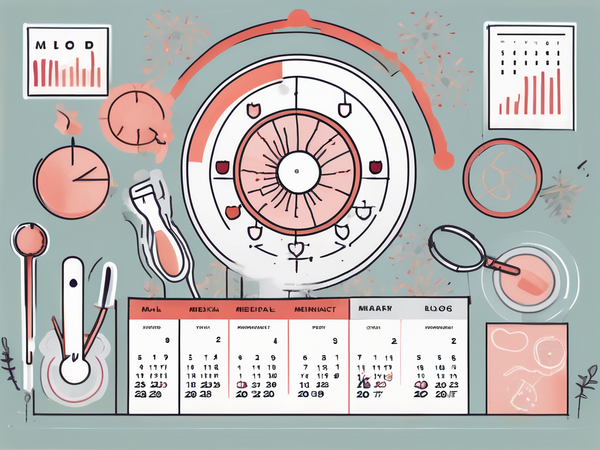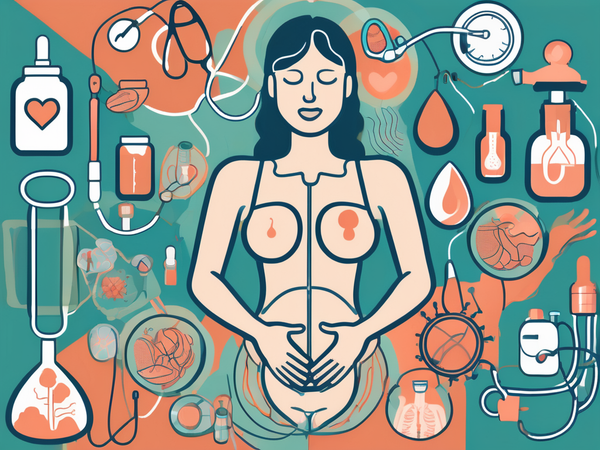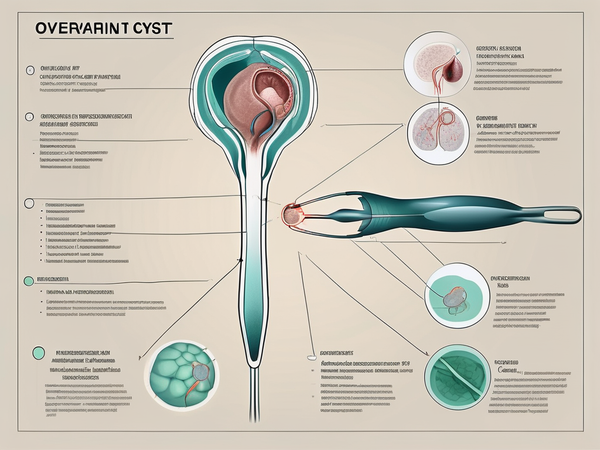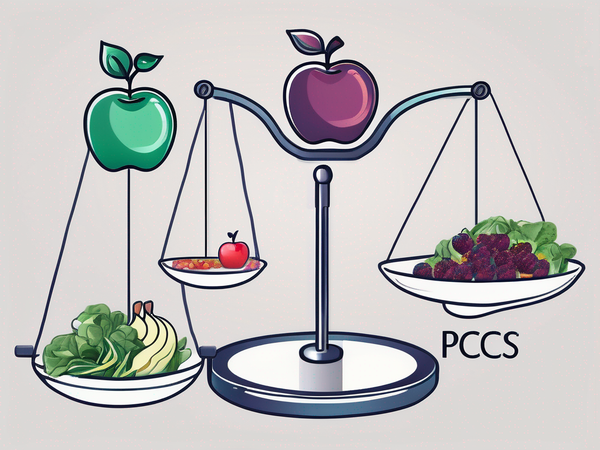PCOS, which stands for Polycystic Ovary Syndrome, is a hormonal disorder that affects many women worldwide. This condition is characterized by a range of symptoms, including irregular periods, hormonal imbalance, excessive body and facial hair growth, weight gain, and fertility issues. To better understand PCOS and its effects on women's health, it is essential to examine the role of hormones in this condition. Hormones play a crucial role in regulating various bodily functions, and any imbalance can significantly impact PCOS development and symptoms.
Understanding the Role of Hormones in PCOS
PCOS is closely linked to hormonal imbalance in women, particularly involving sex hormones like estrogen, testosterone, and progesterone. The hormonal changes occurring in PCOS result in the ovaries producing an excess of androgens (male hormones), leading to numerous complications. This female hormonal imbalance can disrupt the normal menstrual cycle and prevent the release of eggs each month.
One of the main factors contributing to hormonal imbalances in PCOS is insulin resistance. Insulin is a hormone that helps regulate blood sugar levels. However, in women with PCOS, the body becomes less responsive to insulin, leading to increased insulin production. This excess insulin triggers the ovaries to produce more androgens, exacerbating the hormonal imbalance.
The Connection Between PCOS and Hormonal Imbalance
PCOS and hormonal imbalance are closely intertwined. The excessive production of androgens in the ovaries disrupts the delicate balance between hormones, leading to irregular menstrual cycles and the development of cysts on the ovaries. Hormonal imbalance can also affect other aspects of a woman's health, such as metabolism, weight management, and overall well-being.
Furthermore, hormonal imbalance in PCOS can have a cascading effect on various bodily systems. For instance, the disrupted hormone levels can impact the hypothalamus, a part of the brain that plays a crucial role in regulating the menstrual cycle. The hypothalamus communicates with the pituitary gland, which then signals the ovaries to release eggs. However, in PCOS, the excess androgens can interfere with this communication process, leading to irregular ovulation or even the absence of ovulation altogether.
The Impact of Hormones on PCOS Symptoms
Hormones have a profound impact on the symptoms experienced by women with PCOS. Elevated levels of testosterone can cause excessive hair growth, male-pattern baldness, and acne. Estrogen imbalances may contribute to weight gain, mood swings, and increased risk of cardiovascular problems. Progesterone deficiencies can lead to irregular periods and difficulties conceiving. By understanding the specific effects of hormones on PCOS symptoms, individuals with this condition can seek appropriate treatments and management strategies.
Moreover, the hormonal imbalances in PCOS can extend beyond the reproductive system. Insulin resistance, a key player in PCOS, can have far-reaching effects on metabolism. When the body becomes less responsive to insulin, it struggles to effectively regulate blood sugar levels. This can lead to weight gain, particularly in the abdominal area, and increase the risk of developing type 2 diabetes. Additionally, insulin resistance can disrupt the delicate balance of other hormones involved in metabolism, further exacerbating weight management difficulties in women with PCOS.
In conclusion, understanding the role of hormones in PCOS is crucial for comprehending the complexities of this condition. Hormonal imbalances, particularly involving androgens and insulin, play a significant role in the development and progression of PCOS. By recognizing the connection between PCOS and hormonal imbalance, as well as the impact of hormones on various symptoms, individuals can take proactive steps towards managing their condition and improving their overall well-being.
PCOS and Hormones: A Complex Relationship
The relationship between PCOS and hormones is multifaceted, involving various factors that contribute to the development and progression of this condition. Let's explore the key aspects of this complex relationship.
The Role of Hormones in PCOS Development
Hormones, especially follicle-stimulating hormone (FSH) and luteinizing hormone (LH), play a critical role in PCOS development. FSH is responsible for stimulating the growth of follicles in the ovaries, while LH triggers ovulation. In women with PCOS, the ovaries produce higher-than-normal levels of LH, leading to an imbalance between FSH and LH. This hormonal imbalance disrupts the follicle development and ovulation process, contributing to the formation of cysts on the ovaries.
However, the relationship between PCOS and hormonal changes goes beyond FSH and LH. Insulin, a hormone involved in regulating blood sugar levels, also plays a significant role in PCOS development. Insulin resistance, a condition where the body's cells do not respond properly to insulin, is commonly observed in women with PCOS. This insulin resistance leads to increased insulin levels in the blood, which in turn stimulates the ovaries to produce more androgens, such as testosterone. The excess androgens further disrupt the hormonal balance, exacerbating the symptoms of PCOS.
The excessive levels of LH also stimulate the ovaries to produce more androgens, such as testosterone, leading to the characteristic symptoms of PCOS. Understanding the role of FSH, LH, and insulin in PCOS development helps medical professionals tailor treatment plans to effectively manage this condition.
Hormonal Treatments for PCOS
Given the intricate relationship between PCOS and hormones, hormonal imbalance treatments often form a crucial part of managing this condition. One commonly prescribed treatment is the use of oral contraceptive pills, which contain synthetic versions of estrogen and progesterone. These hormonal contraceptives help regulate the menstrual cycle, reduce androgen production, and alleviate common symptoms like acne and excessive hair growth.
Another hormonal treatment option is the use of anti-androgen medications. These medications work by blocking the effects of androgens in the body, leading to a reduction in symptoms such as hair loss and male-pattern hair growth. In some cases, medical professionals may also prescribe medications that stimulate ovulation, restoring the hormonal balance necessary for fertility.
It is important to note that while hormonal treatments can be effective in managing PCOS symptoms, they are not a one-size-fits-all solution. Each individual's hormonal profile and specific symptoms must be taken into account when determining the most appropriate treatment approach. Additionally, lifestyle modifications, such as regular exercise and a balanced diet, are often recommended alongside hormonal treatments to optimize overall health and well-being.
Estrogen: Its Role and Impact on PCOS
Estrogen, often referred to as the "female hormone," plays a crucial role in women's reproductive health. This hormone regulates the menstrual cycle, supports bone health, and contributes to the overall well-being of women. However, in PCOS, estrogen imbalances can occur and have a significant impact on the body.
Understanding Estrogen's Function
In women without PCOS, estrogen levels fluctuate throughout the menstrual cycle, reaching their peak just before ovulation. Estrogen stimulates the thickening of the uterine lining, preparing it for possible pregnancy. If fertilization does not occur, estrogen levels drop, resulting in menstruation. Estrogen also plays a role in maintaining healthy cholesterol levels, cardiovascular health, and mood stabilization.
Estrogen Imbalance and PCOS
In women with PCOS, estrogen imbalances can occur, leading to irregular menstrual cycles and other symptoms. High estrogen levels or an imbalance between estrogen and progesterone can contribute to the development of cysts on the ovaries. Additionally, estrogen imbalances can further exacerbate insulin resistance, leading to increased androgen production and worsening PCOS symptoms.
Addressing estrogen imbalances in PCOS may involve lifestyle changes, hormonal treatments, and medications. Identifying and managing these imbalances is crucial for improving overall health and well-being in women with PCOS.
Furthermore, estrogen receptors are not only present in the reproductive organs but also in various tissues throughout the body, including the brain, bones, and cardiovascular system. This widespread distribution highlights the diverse functions of estrogen beyond its role in the menstrual cycle. Estrogen is known to have neuroprotective effects, supporting cognitive function and potentially reducing the risk of neurodegenerative diseases.
Estrogen and Bone Health
Estrogen plays a vital role in maintaining bone density and strength. It helps regulate the activity of osteoblasts, the cells responsible for bone formation, and osteoclasts, the cells that break down bone tissue. In women with PCOS, estrogen imbalances can lead to decreased bone density, increasing the risk of osteoporosis and fractures.
Testosterone: More than a Male Hormone
Testosterone, often associated with masculinity, is a hormone found in both men and women. While it is primarily known for its role in male sexual development, testosterone also serves essential functions in women's health.
The Role of Testosterone in Women's Health
In women, testosterone plays a critical role in supporting libido, muscle strength, and bone health. It contributes to the growth of pubic and underarm hair and aids in maintaining overall energy levels. However, when hormonal changes in women occur, testosterone levels can become elevated, leading to unwanted symptoms.
High Testosterone Levels and PCOS
Elevated testosterone levels in women with PCOS can manifest in various ways. Excessive hair growth, known as hirsutism, is a common symptom caused by increased androgen production. Women may also experience male-pattern hair loss, acne, and changes in their menstrual cycle.
Managing elevated testosterone levels in PCOS may involve hormonal treatments, such as anti-androgen medications or oral contraceptives. Lifestyle modifications, such as regular exercise and a balanced diet, can also help reduce testosterone levels and mitigate associated symptoms.
Conclusion
In conclusion, hormones play a crucial role in the development and manifestation of PCOS. Hormonal imbalances, particularly involving sex hormones like estrogen and testosterone, contribute to the various symptoms experienced by women with PCOS. Understanding the complex relationship between PCOS and hormones is essential for effective management and treatment. Medical professionals can tailor hormone-based therapies to address specific hormonal imbalances and alleviate symptoms, ultimately improving the overall health and well-being of individuals living with PCOS.

























